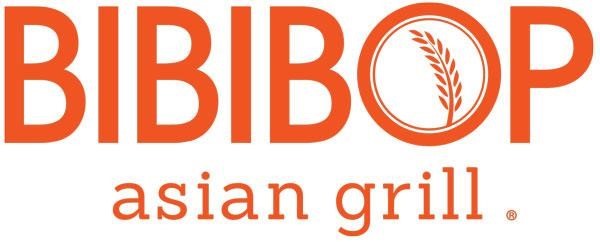

Nutrition facts and Weight Watchers points for Japchae Noodles from Bibibop.
Calories
There are 210 calories in Japchae Noodles.
Nutrition Facts
| Serving Size | ? | |
| Calories | 210 | |
| Calories From Fat | 35 | |
| Amount Per Serving | % Daily Value* | |
| Total Fat | 4g | 6% |
| Saturated Fat | 0g | 0% |
| Trans Fat | 0g | |
| Cholesterol | 0mg | 0% |
| Sodium | 310mg | 13% |
| Total Carbohydrates | 42g | 14% |
| Dietary Fiber | 1g | 4% |
| Sugars | 3g | |
| Protein | 1g | 2% |
| Vitamin A | ? | |
| Vitamin C | ? | |
| Calcium | ? | |
| Iron | ? | |
*All percent daily value figures are based on a 2,000 calorie diet.
Nutritional information source: Bibibop
Allergens
We are working on getting the allergen information for this item.
Ingredients
We are working on getting the ingredients for this item.
Additional Information
Bibibop Japchae Noodles are a popular and delicious dish that combines chewy sweet potato starch noodles with a variety of fresh vegetables. This staple of Korean cuisine is naturally gluten-free, making it a great choice for those with dietary restrictions. Let’s explore the features, benefits, and drawbacks of japchae noodles.
Features:
- Ingredients: Japchae noodles are made with sweet potato starch and water. These two simple ingredients create noodles with a slightly sweet taste and satisfying chewy texture.
- Calories: One serving of Japchae noodles contains 210 calories, making it a moderate calorie option for a meal.
- Macronutrient Profile: Each serving of Japchae Noodles provides 4 grams of protein, 42 grams of carbohydrates, and 4 grams of total fat.
- Low Sodium: With 310 milligrams of sodium per serving, Japchae noodles offer a relatively low-sodium option compared to many other prepared foods.
- Dietary Fiber: Japchae noodles contain 1 gram of fiber, contributing to a well-rounded meal.
Benefits:
- Gluten Free: Japchae noodles are naturally gluten-free, making them suitable for those with gluten sensitivities or those on a gluten-free diet.
- Versatile dish: Japchae noodles can be enjoyed as a stand-alone dish or paired with proteins such as beef, pork or chicken, along with a variety of vegetables. This versatility allows for customization and the addition of different flavors and textures.
- Nutritious ingredients: The combination of sweet potato starch noodles and fresh vegetables in Japchae provides essential vitamins, minerals and fiber, contributing to a well-balanced meal.
- Satisfying texture: The chewy texture of Japchae noodles adds to the eating experience, making it a satisfying and enjoyable meal.
- Cultural Significance: Japchae holds cultural significance in Korean cuisine and is often served during special occasions and celebrations. It symbolizes long life and prosperity, adding a cultural touch to your dining experience.
Disadvantages:
- Limited nutritional value: While Japchae noodles provide a tasty and enjoyable meal, they may not provide a significant amount of essential nutrients beyond carbohydrates and a modest amount of protein. To ensure a well-rounded diet, it’s important to combine Japchae noodles with other nutrient-dense foods.
- Allergen information not available: Specific allergen information for Bibibop Japchae Noodles is not available on this website. Individuals with food allergies should exercise caution or seek additional information before consuming this dish.
Conclusion
Bibibop Japchae Noodles are a delicious and versatile dish that combines the unique texture of sweet potato starch noodles with a variety of fresh vegetables. While they offer a gluten-free option and a satisfying eating experience, it’s important to consider their limited nutritional value and lack of specific allergen information. Incorporating Japchae noodles into a balanced diet can provide a flavorful and culturally significant meal that is sure to delight your taste buds.
Questions and Answers
What are Japchae noodles made of?
Japchae noodles are made with sweet potato starch and water. These two simple ingredients create noodles with a slightly sweet taste and satisfying chewy texture. They are naturally gluten-free and available at your local Asian market or online.
Are Japchae noodles healthy?
Japchae noodles, made from sweet potato starch, have a low glycemic index and are gluten-free. However, other than carbohydrates and a modest amount of protein, they don’t offer significant nutritional value. For a well-rounded meal, it’s important to combine Japchae noodles with other nutrient-dense foods.
How should Japchae noodles be served?
Japchae noodles can be served hot or cold, depending on personal preference. They are often garnished with sesame seeds and chili slices for added flavor and visual appeal. This dish is often served at Korean parties and special occasions with seasonal vegetables.
Can Japchae noodles be customized?
Yes, Japchae noodles can be customized according to your personal taste and dietary preferences. You can add various vegetables such as carrots, spinach, mushrooms and bell peppers, along with a protein source such as beef, pork or chicken. This allows for a versatile and customizable dining experience.
Is allergen information available for Japchae noodles?
Unfortunately, specific allergen information for Bibibop Japchae noodles is not available on the website. If you have food allergies or sensitivities, it’s recommended that you exercise caution or seek additional information before consuming this dish to ensure it meets your dietary needs.